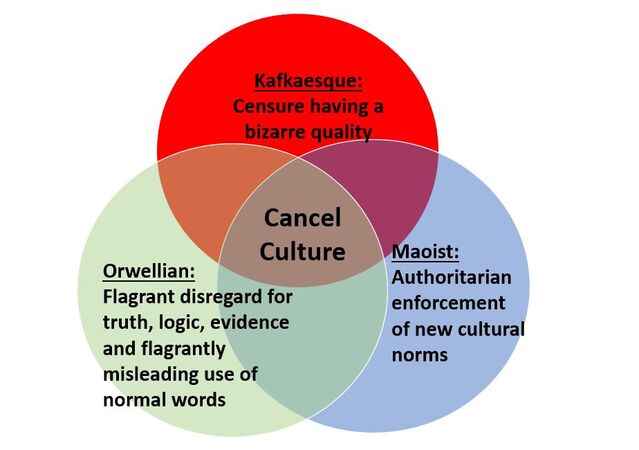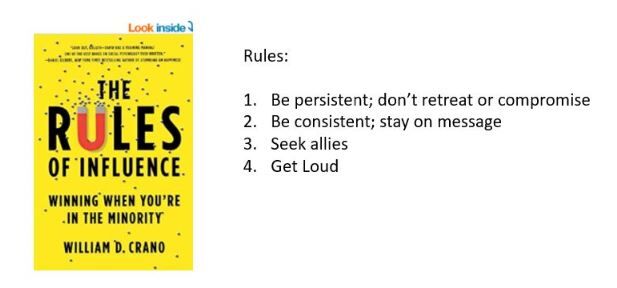Forgiveness
Ten Ways to Defend Against a Cancellation Attack
The mob is denouncing you, demanding you be punished. Now what?
Posted December 22, 2020 Reviewed by Kaja Perina
The self-righteous and self-appointed grim-faced commissars of cancel culture, the everything-is-racist/sexist/bigoted/silence-is-violence-but-looting-is-protest/free-speech-for-me-but-not-for-thee offendetrons are coming for you. They are probably denouncing you on social media or writing nasty emails about you to your boss, implying or outright demanding that you be fired or punished. It might even be your colleagues and coworkers, or, for academics, your own students, denouncing you.
A little prep can go a long way. These attacks have a surreal quality to them and, if you are not familiar with them, you may be taken down before you know what hit you. The first thing you must do is familiarize yourself with the Orwellian nature of these attacks. Early detection can be crucial to your ability to survive.

What Alternate Universe Did I Fall Into?
Everything about such an attack may seem nuts. You committed no terrible deed. This should be obvious to anyone with half a brain. Except it isn't. You make fitful attempts to persuade your accusers of your innocence, but not only are they unwilling to listen, but they also take your protestations of innocence as further evidence of just how despicable you are, and as an opportunity to denounce you further.
Now What?
These are not rules, they are more like guidelines. They are not guaranteed to work. But they probably will help improve your odds of surviving the attack with your dignity and maybe even your job intact and your paper not retracted.
Ten Ways to Defend Against Cancellation Attacks
1. Stay calm. Whatever is going to happen will probably take some time, meaning you have time to plan a strategic response. No matter how strongly you feel compelled to defend yourself, when initially under attack if at all possible, do not respond. Withdraw. Wait. Watch.
2. Accept your fate. You have already been denounced and publicly shamed. This will continue. You may be fired. One of the great lost arts of fighting a cancellation attack is stoicism. Accepting that you are going to lose gives you extraordinary power to fight the attack. You now have nothing to fear. This is liberating.
3. Prepare to weather the storm. Most such attacks are sudden, vicious, and short. Knowing that most are short, you can just take it. Allow it to wash over you, like a large breaking ocean wave that knocks you under but soon recedes. Shouldn't you fight back? Not yet. You will lose.
4. DucknCover. You are totally alone. You cannot take on the mob.

Go silent! Do not counterattack. Everything you say can and will be used as further justification to demonize and punish you.
Scrub your social media. Anything you ever posted can and will be taken out of context to prove you are morally corrupt trash and filth.1
Throw up camouflage. Cute animals. Sunsets. Landscapes. Make it hard for them to find anything of substance. It's hard to sustain willingness to attack someone posting kittens.
Silence deprives them of a target and of the oxygen needed to sustain their fire.
5. Play the long game. You have lost this round, but the game isn't over. Your strategy is to limit the damage during the worst initial phase of the attack. If you survive the initial onslaught, you will have all the time in the world to rebuild your reputation, turn the experience into something constructive (such as this blog!), and, if you choose, to seek vengeance.
6. Do not apologize! You can do nothing to sate what a distinguished Yale psychologist identified as sadism. Instead, your apology will be treated as a confession of guilt showing that even you acknowledge how despicably you behaved.
Some exceptions: Feel free to apologize if you really did something unethical or screwed up something important. However, you are doing this because you think this is the right thing to do, not because you expect to appease your attackers. Appeasement doesn't work.

7. Do not resign, retract, cave, or voluntarily cooperate. Why? The game isn't over till it's over. You make it easy for them if you cave, and you absolve them of all responsibility for their bullying. It proves your actions were despicable (you just implicitly confessed by stepping down or retracting your own paper). It also allows them to say it was your choice, not theirs. You have inadvertently given them cover that camouflages their sociopathological bullying, censoriousness, and authoritarianism.
Don't give an inch. Count Odo defeated 30,000 Vikings with 300 knights by making them suffer so much they concluded continuing the attack was not worth it. Make coming after you hard and uncomfortable for them.
You may be called in for meetings. Find out if these meetings are a condition of your employment. Simply asking, "Do I need to go" may blunt the attack. It may put authorities in an awkward position. They want to sate the mob, but they may not have the authority to require you to go. If not, don't go.
These are likely to be soft versions of Maoist struggle sessions, which are designed to publicly shame you and compel you to answer questions to which any response confirms how despicable you are. Defend yourself and you reveal yourself to be a defensive bigot. Just ask Robin D'Angelo, author of White Fragility (who claims that denying you are racist is evidence of your racism). Of course, if you confess your racism, it vindicates the mob. You are damned if you do, damned if you don't.
There may be exceptions to this. If you choose to cooperate, prepare. Go in with a plan — know what your responses will be in advance to questions and comments that attack you or presume your guilt.
8. Record everything. The behavior of your attackers is atrocious and possibly illegal (it might violate civil rights protections in the U.S. or hate speech or defamation laws in other countries). It may constitute workplace harassment. As such, you may be the one with the most credible case to bring to HR. Or to court. Your records will be invaluable with respect to documenting the existence and extent of the harassment you were subject to.
9. Seek allies. The mob has mobilized, you have not, so the mob may seem unstoppable and an overwhelming majority. They are probably neither. You need to mobilize support. Allies within and outside your organization. If necessary, seek legal counsel.
Here are two articles on how people successfully fought these sorts of mobs:
The Foundation for Individual Rights in Education often provides resources to academics subjected to academic mobs in the U.S. The Free Speech Union, currently in the U.K. but likely to expand, defends the speech rights of its members.
New organizations with goals of defending speech, academic freedom, and people from these sorts of attacks are being launched soon, so look for them!

The Rules of Influence, above, provides both an excellent overview of some of the best research in social and political psychology AND tons of real-world examples and practical advice on how to win when you are in the minority. However, you are probably just outnumbered by the mob, who is the real minority.
10. Counterattack. Regardless of whether you have survived or lost, it is time to consider vengeance. You may just want to get on with your life, and that is fine. But you now have the option to take the battle to those who denounced you. And here is why you might want to counterattack:
- Having been targeted, and survived, you now know a lot about the surreal, Orwellian nature of these attacks, and will never be surprised again. You also have experience fighting them. George Washington lost almost every battle he fought, yet won the Revolutionary War. You have not lost if you keep fighting.
- Do it for yourself. If you do not stand up for yourself, who will?
- Do it for the greater good. Unless people like you stand up to these mobs, it's probably going to get worse. If not you, who?
How you counterattack will depend on your situation, on what happened to you, your resources, and who your allies are. Still, here are some common avenues of counterattack:
- Write a blog, an essay, if you have the chance, an op-ed exposing the whole sordid episode. Or several. Sunshine is the best disinfectant.
- Post videos on Youtube. A whistleblower staff member at Smith College has been posting a series of videos exposing extensive use of ideological indoctrination and public humiliations. Her videos are short and effective.
- Start a podcast to denounce the denouncers. One of my favorites is deliciously named Blocked and Reported.
- Consult a lawyer for both defense and countersuits.
- If you are an academic, like me, you can make this part of your scholarship! For example, we recently had accepted for publication this article on Scholarship Suppression.

You thought "fighting for liberty" was something out of the history books. It is. But that fight is here, now, too.
If you enjoyed this sort of analysis, feel free to follow me on Twitter, where I address issues of good and bad social science, BS detection, and the rise of radicalism and intolerance.
References
1 "Corruption and filth" was some of the rhetoric used by the actual Nazis (of the 1930s, not the delusions of Nazis to be regularly found on social media) to justify eliminating legal protections of free speech and a free press.




